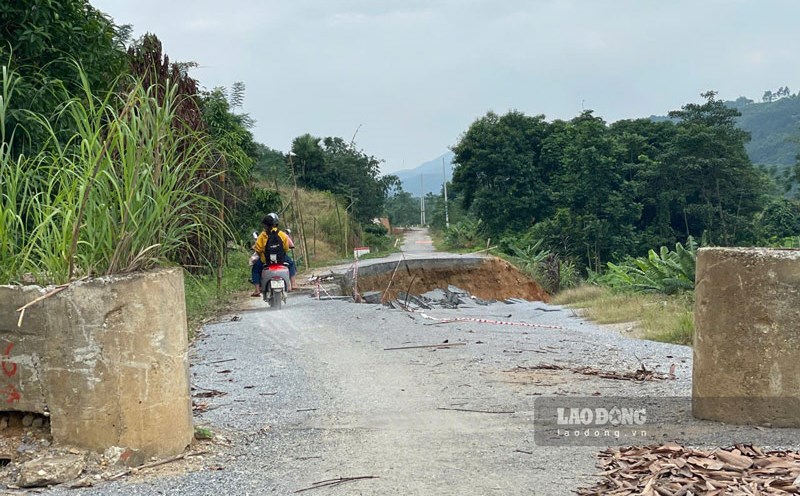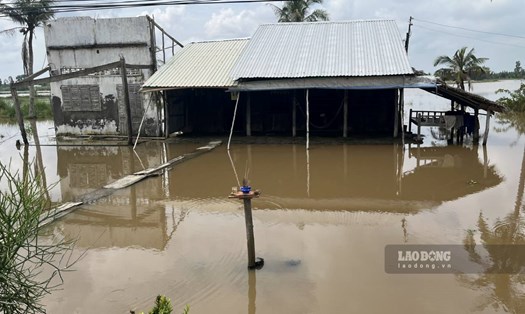Stink bugs are classified as secondary
According to Master Nguyen Phuoc Tuyen, there are many types of insects that harm crops, but they are basically divided into two groups: the group that can attack the entire growth period of crops and the group that can only attack within a certain time frame, this group is called secondary.
“Stink bugs are classified as a secondary group because they can only attack by sucking rice plants during the milky stage, which is only for 10-15 days,” Mr. Tuyen emphasized.
If the rice plant has passed the milky stage, stink bugs are no longer able to cause harm. However, due to many reasons, such as lack of updated knowledge about this insect species, many farmers continue to spray until the rice grains are full. This not only causes unnecessary waste of money, but also increases the possibility of pesticide residues with double consequences: Attacking the health of domestic consumers and sowing the seeds of danger for Vietnamese rice when participating in export.
Why?
Master Tuyen informed: Rice in Thap Muoi district died suddenly after sowing. Field records show that the rice died due to organic poisoning. This damage was caused by the farmers themselves.
Because organic residues have not been treated, specifically straw that has not been decomposed before sowing, when exposed to high temperatures, the rate of organic matter decomposition occurs rapidly, releasing organic acids and some toxic gases, causing poisoning. When rice plants are poisoned, it is very difficult to save them. Even if they can be saved, the ability to tiller is very low. According to many agricultural experts, there are many reasons for this situation, but basically it is because farmers are having to "swim on their own". Agreeing with the opinion that rice prices are increasing, causing farmers to speed up the sowing process, making it impossible to handle straw, but Master Tuyen said that the root of the problem is due to the authorities' lack of closeness and determination in controlling and handling compliance with the crop calendar...
The story of stink bugs shows that farmers lack support in basic knowledge in identifying and correctly understanding the growth characteristics of each species of harmful insects in order to effectively apply spraying according to the 4 correct principles... More worrying is the lack of "weapons" to support farmers in fighting.
Need for drastic and practical action
“Rice plants and grains are facing many serious challenges, so more than ever, farmers are in dire need of practical and drastic support from authorities,” said Mr. Tuyen.
Global climate change will lead to an increase in crop diseases. Meanwhile, insects and diseases are always ahead of humans and have the ability to adapt very quickly. Therefore, farmers need to be invested in properly, guided right on the plow about soil, seeds, fertilizers, and incident handling measures... with a scientific strategy and a series of drastic and practical actions. Only then can they feel secure in producing with high productivity and quality.
In addition, it is necessary to strengthen technical support and supply of specialized materials to treat rice pests. Along with promoting insect forecasting (light traps), it is necessary to especially manage the field of plant protection drugs.
Because, unlike state agencies that aim for pure service, for pesticide businesses, the important issue is profit. Therefore, it is necessary to strengthen the official information channel from state agencies with the right types of pesticides to use. Next, it is necessary to strictly manage the aircraft used for spraying pesticides (drones).
“Each drone has 16 different spraying methods that adapt to the biological characteristics of many types of insects. Therefore, even if there is a pesticide and it is sprayed at the right time, if there is a lack of technique, the pesticide's effectiveness cannot be maximized,” Mr. Tuyen shared.











